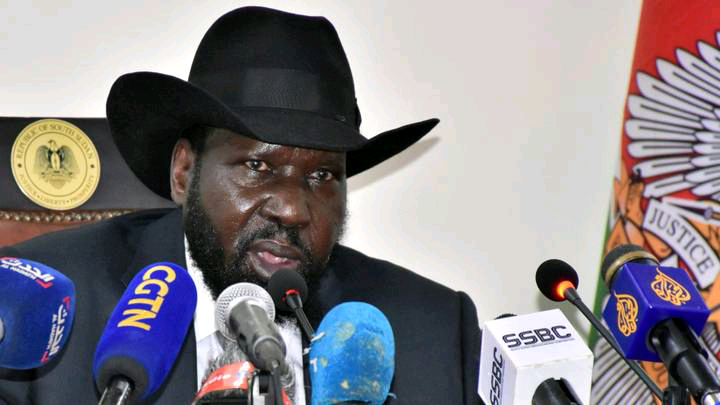By: Chioma Madonna Ndukwu
South Sudan’s President Salva Kiir has dismissed the heads of the military, police, and central bank, without providing a clear explanation. The announcement, made on state television SSBC late Monday, revealed that Paul Nang Majok would replace General Santino Wol as the army’s chief of defense forces, while James Alic Garang was removed as central bank governor and replaced by Johnny Ohisa Damian, who had held the position previously. Additionally, Abraham Peter Manyuat was named the new Inspector General of Police, taking over from Atem Marol Biar.
The sudden changes have raised eyebrows, especially considering the country’s recent history of leadership instability. In 2023 alone, the central bank saw two leadership shifts, reflecting ongoing turbulence in South Sudan’s governance. Sources within the military suggest that dissatisfaction within the army, where some soldiers haven’t received pay for over a year, may have contributed to the shake-up. However, official reasons for the dismissals remain unclear.
South Sudan’s political environment has long been volatile, with frequent changes to key positions, particularly in the finance sector. The country, recovering from a brutal civil war that lasted from 2013 to 2018, still faces widespread instability. Despite a peace agreement, sporadic violence continues, and South Sudan has delayed its national elections until 2026, further highlighting the fragile state of its governance.
Could this be the Right Move for South Sudan’s Fragile Peace?
This abrupt reshuffling of top leaders in South Sudan could signal an attempt by President Kiir to consolidate power or address simmering dissatisfaction within the ranks. While such drastic actions are not uncommon in South Sudan’s troubled history, the lack of transparency regarding the reasons behind these changes makes it difficult to assess their true impact.
In my view, while the move might bring short-term shifts in power dynamics, it is unlikely to provide a lasting solution to the country’s deep-rooted issues. South Sudan’s governance problems go beyond individual leaders—they stem from systemic challenges, including an economy battered by civil war, ongoing internal conflict, and a fragile peace agreement. The consistent turnover in leadership, especially in critical institutions like the central bank and security forces, undermines stability and signals a lack of long-term strategy for governance.
South Sudan needs more than leadership changes to achieve sustainable peace and economic recovery. Structural reforms and transparent leadership are essential if the country is to break free from its cycles of instability. Until these issues are addressed, such dismissals might just be another chapter in South Sudan’s tumultuous political story rather than a step toward real progress.


